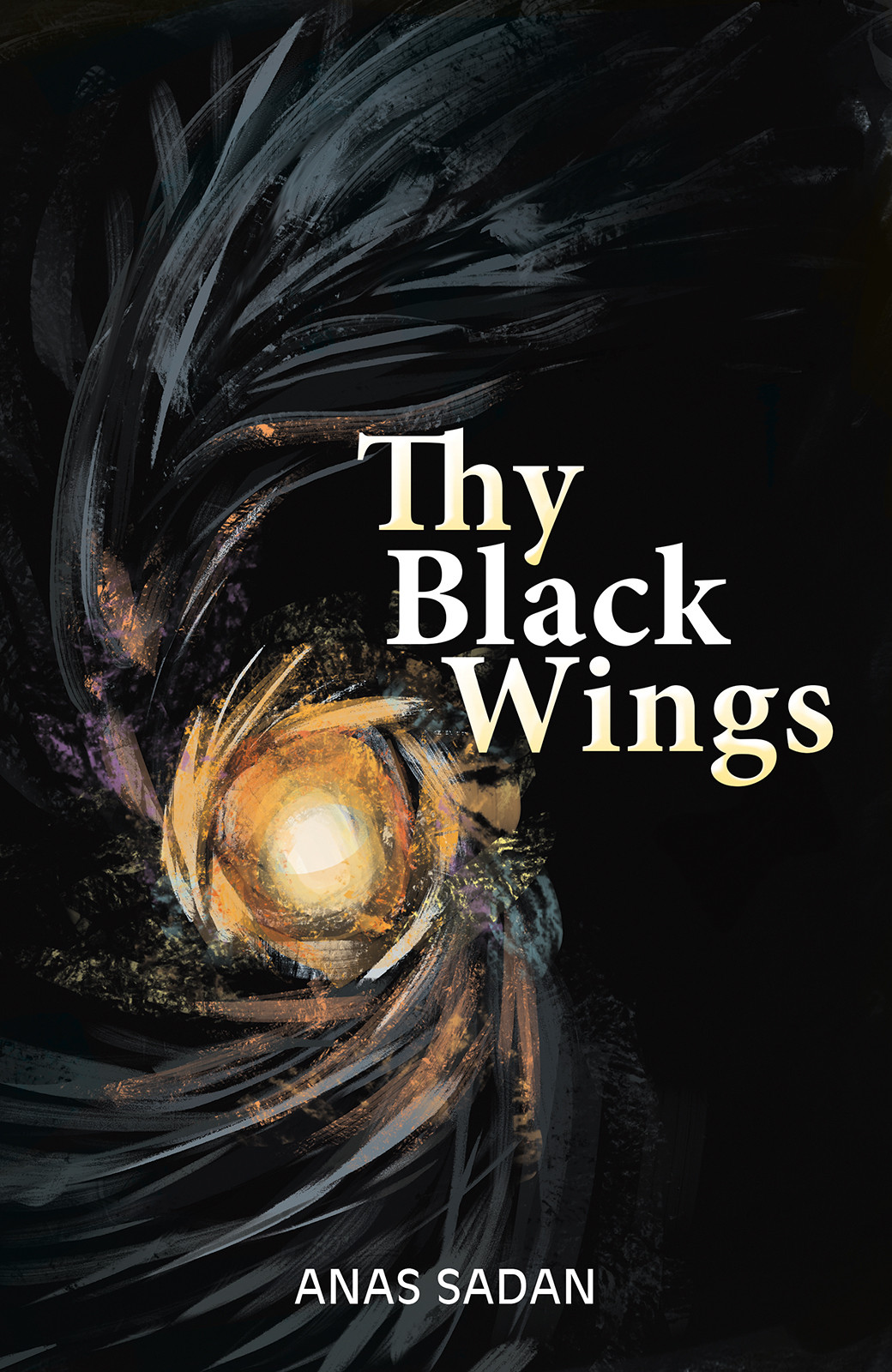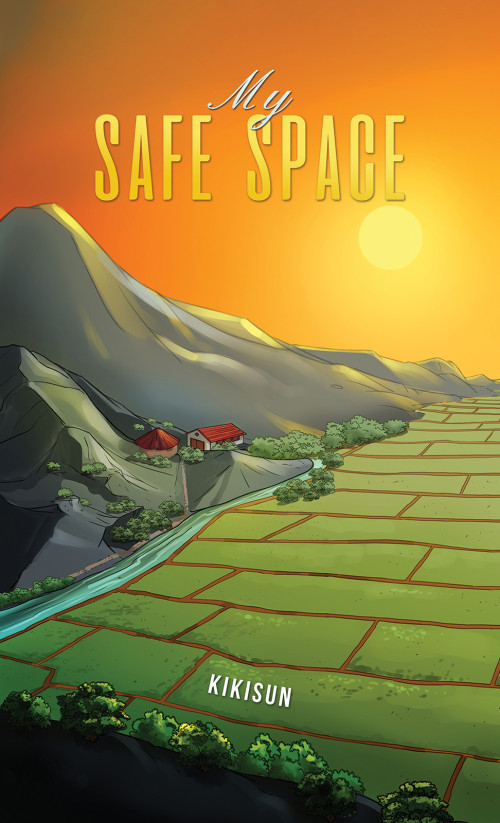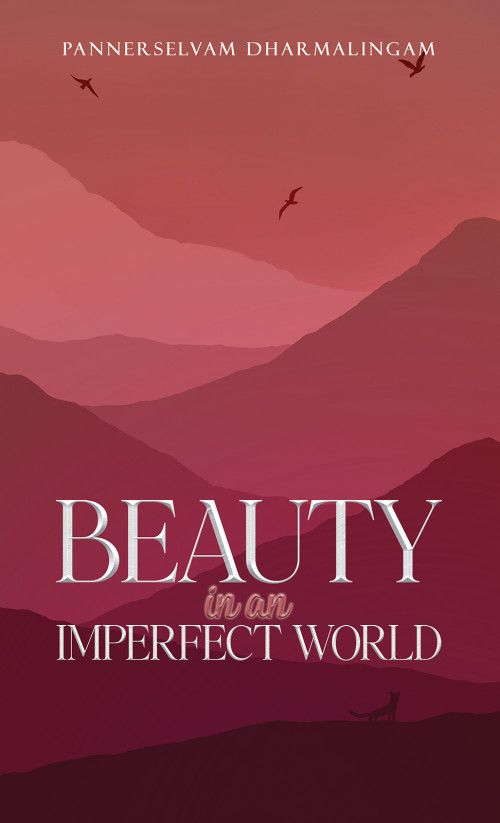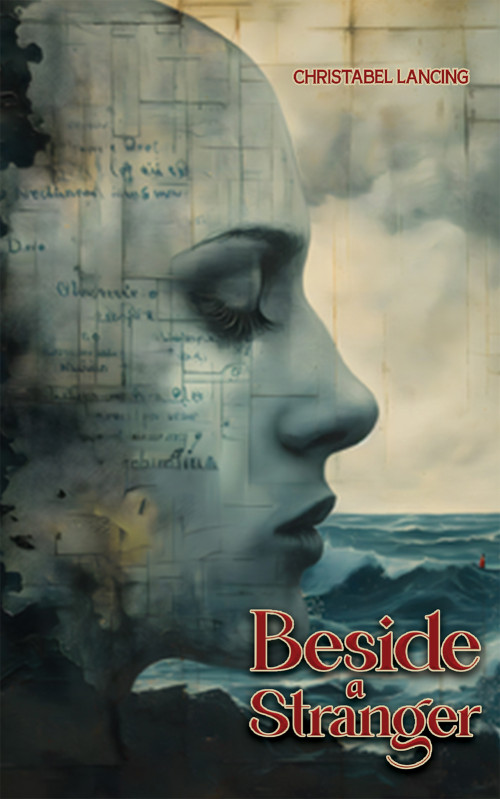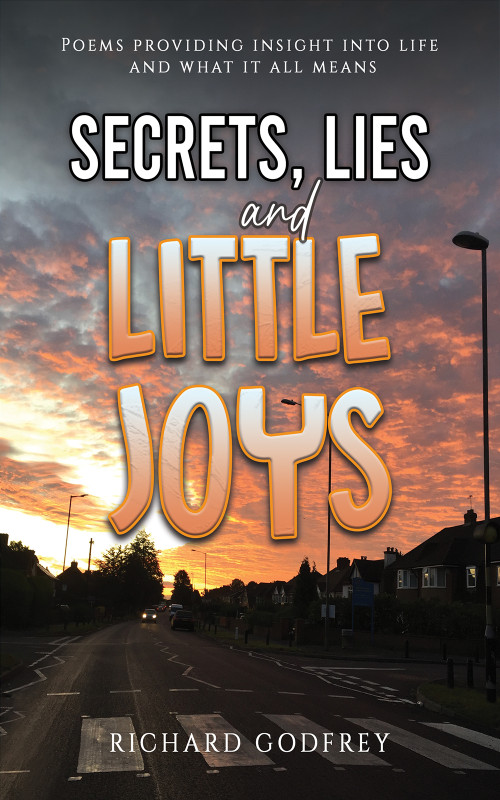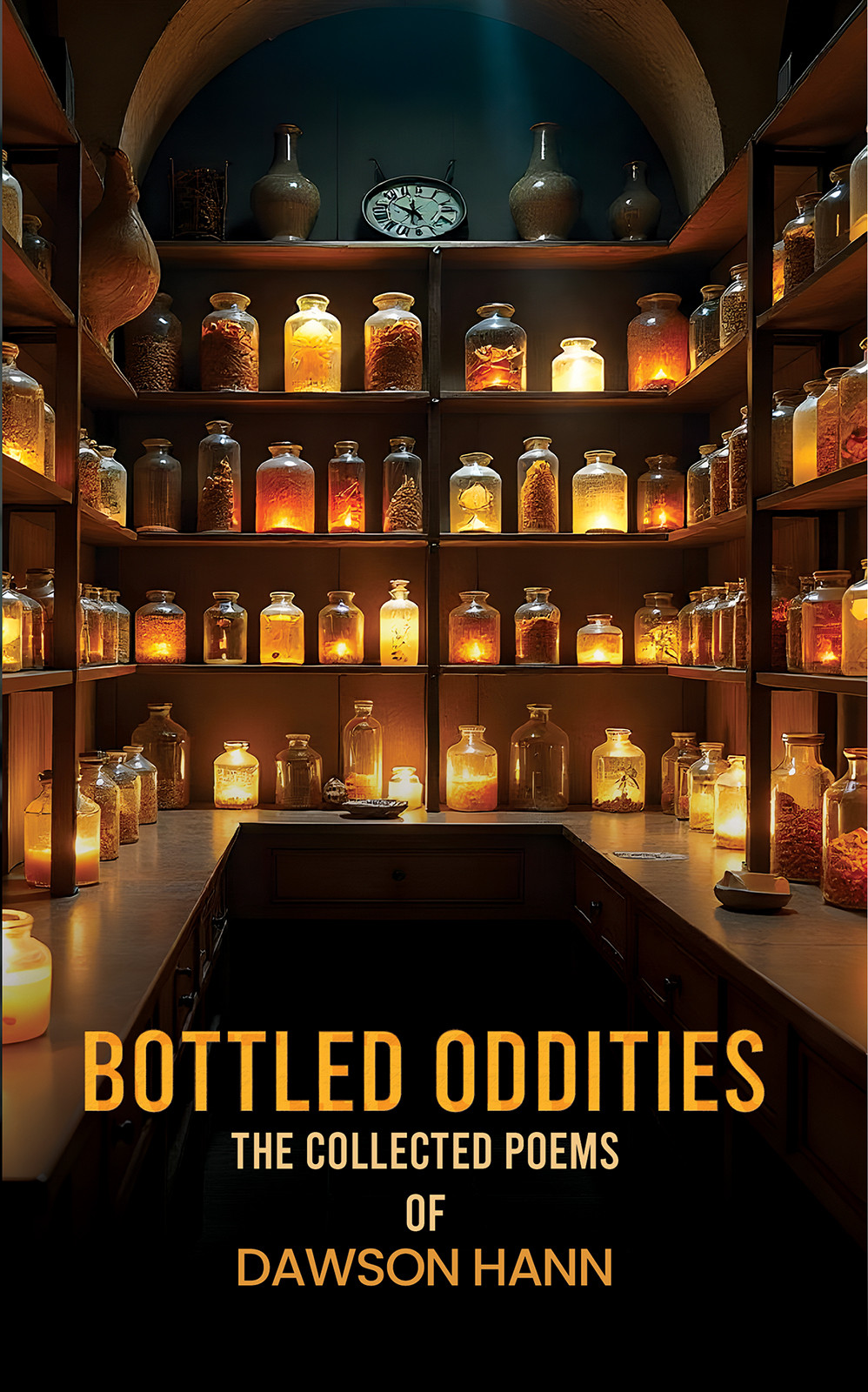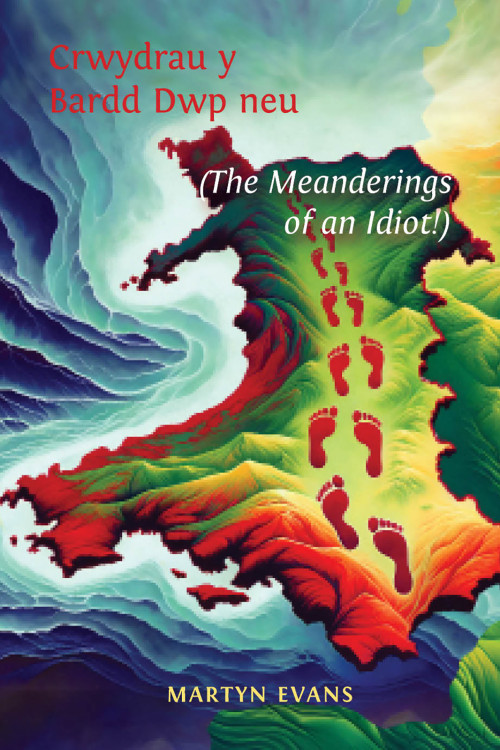-
Thy Black Wings is not merely a debut poetry collection it is an awakening.
From the first meditation to the final line, Anas Sadan demonstrates a rare philosophical depth that transcends his years. These 37 interwoven poems do not stand alone; they breathe together, forming a contemplative journey through existence, aloneness, longing, moral clarity, chaos, redemption, and the fragile ecstasy of being human.
What is most astonishing is the emotional intelligence behind the language. Born in rural Netrakona, Bangladesh, Anas brings the sensibility of riverbanks, jungle paths, and quiet reflection into English verse with striking naturalness. His imagery feels lived, not constructed. Nature is not decoration in this collection it is teacher, witness, and companion.
There is something timeless in his voice. At moments, the poems carry the introspective ache of existential meditation; at others, they unfold with gentle spiritual luminosity. He explores love and loss without sentimentality, suffering without self-pity, and hope without naïveté. His lines often feel less written than discovered like truths unearthed from silence.
The title itself, Thy Black Wings, suggests darkness, weight, and shadow yet within these poems, even black wings hold the promise of flight. The collection acknowledges wounds but never leaves the reader in despair. Instead, it guides us toward reflection, resilience, and quiet transcendence.
What makes this debut extraordinary is not simply the author’s youth, but the maturity of thought and restraint of expression. There is no rush to impress. The voice is steady, contemplative, and assured. Anas Sadan writes as one who has listened deeply to the earth, to memory, to grief, and to the invisible questions that haunt every human life.
If this is the beginning of his literary journey, the horizon ahead is vast.
Thy Black Wings is a sanctuary for readers who seek poetry that dares to confront darkness while still believing in the possibility of light.
-
Thy Black wings — by Anas Sadan —unfolds not as isolated utterances but as interrelated meditations on existence, temporality, and the fragile ecstasy of being human. A total of 37 poems takes on sundry subjects like aloneness, probity, yearning, pandemonium and a utopian way to handle our modern disorders. First ten poems of Thy Black Wings is a set of being oneself where Sadan seeks only himself. His ‘Ever Yearning Heart’ has ‘Something to Say’ — especially expressing ‘Missing’ by saying ‘’Beloved, Oh beloved, I yarn for you, day and night.” ‘Raindrops’ makes a ‘Classical Wound’ to the ‘The Harbour’ that belongs to the speakers himself. Then ‘The Findings’ along with ‘Find me’ dish out the reason behind ‘Essance of living’ and ‘Our Odyssey’. From the first one to the tenth—making a set—speaker comes across a finding with the streamer of his personal feelings. While reading, a profound changeover from the poem ‘Soul Matters’ blows our mind all of a sudden. A deeper understanding has been aroused through the next five to six poems. Sense of life and death, hell and heaven drive readers mind to a mystical arena of meditation. Using familiar but cryptic imageries like “midnight grows along the wall’’ in ‘Classical Wound’, ‘‘Shaded candles; No flame’’ in ‘Wilted Petals’ ‘’school bags lie empty’’ in “Tiny Hands’’ —Sadan makes his odyssey to the darkness of forever. ‘’False will pregnant the odd truths’’ in the poem ‘Soft Breaths in Odd Waves’ juxtaposes the bafflement of truth and false . ‘’O my another mine’’ in ‘Memento Mori’ may the reflection of Eliot’s Prufrock — a modern person of complexities. Then comes another alteration from the poem ‘Hopes in Dark’. From here Sadan inspects a chaos free world for everybody ‘That no one will ever hungry again’. Poems like ‘Surviving the Inferno’, ‘Lost Lives’, ‘Weeping Tides’ and ‘Wars Bitter Wine’ reflects poet’s dutiful attitudes towards the messes of this post-modern era. Thy Black Wings is pregnant with a bunch of figures of speech. “He rose / Phoenix from the ash.” In the poem ‘Gangsters Paradise’, ‘’Tales of Arcadia and Sylvian Gods’’ in the poem ‘Cathedral of Leaves’ are cases in point of myths and legends. A wonderful simile ‘’with you as compass, guiding day” from the poem ‘Through the cracked Earth’’ reminds me of Jhon Donne’s conceits. Personification in the line ‘’Dark will swallow you soon’’ from the poem ‘Screaming Rain’ brings us to a deeper thought of life and death. Using regional words like ‘‘tasbih’’ in ‘Paranoia’, ‘‘Malik’’ in ’Gangsters Paradise’, “noor” in ‘Raindrops’ heightens the diction of the book to a well-structured level.
Ultimately, what makes the collection remarkable is its ability to sustain complexity without obscurity. The poet’s vision is both abstract and immediate, philosophical yet visceral. The reader is invited not to decode but to dwell—to inhabit the rhythm of thought, to feel the weight of reflection, and to emerge altered. In its synthesis of intellect and emotion, discipline and intuition, this poetry reaffirms the enduring relevance of the lyrical imagination in an age often dominated by fragmentation and noise.
-
“Thy Black Wings” by Anas Sadan is a poetic journey that transcends the boundaries of age, geography, and language—a rare feat for a writer so young, and yet, so inwardly vast.
Reading this collection, I was struck by how gracefully Anas captures life’s contradictions—grief and hope, love and solitude, innocence and harsh reality—through a lyrical lens that feels both deeply personal and profoundly universal. Though written in English, the soul of this book is rooted in Bangladeshi soil, rich with nature, culture, and social consciousness. The choice of English is not a limitation—it’s a bridge. And through that bridge, Anas delivers 37 poems that resonate with readers from every corner of the human experience.
The title Thy Black Wings is itself a work of poetry. Its archaic diction lends it a timeless weight, while the image of “black wings” hovers somewhere between shadow and salvation. That duality—darkness as both burden and motivation—is the emotional core of this collection. These wings do not simply carry pain; they carry the possibility of flight.
One of the collection’s most moving threads is the exploration of adolescent longing and emotional turbulence. In poems like Ever Yearning Heart, Missing, Findings, and Raindrops, love becomes something both ethereal and haunting. Regret looms large, especially in “Raindrops,” where the poet reflects on missed emotional depths.
His use of repetition, conditional language, and rain imagery gives the poems a songlike rhythm that feels like whispered confessions to a silent night. The emotional gravity of these works is rare for any writer—let alone one still navigating the teenage years.
Equally striking is the poet’s raw depiction of psychological states. In Soft Breaths in Odd Waves, Paranoia, and Confusion, he explores identity, disillusionment, and the search for inner meaning. These poems, often existential and reflective, are laced with philosophical questions and spiritual yearning. The line
“What if you are lost forever in this mental maze?”
echoes with a fear that is not adolescent—it is human.
What also sets this collection apart is its social awareness. Poems like Tiny Hands, Cracked Vessel, Sorrowful Bricks, and Hopes in Dark bear witness to poverty, inequality, and child labor with stunning empathy. Instead of passive sorrow, Anas channels poetic activism that urges us to imagine fairer world:
“Let us rise as communities united,
Standing against tides of hunger…”
His style is refreshingly diverse. Free verse dominates the structure, allowing each poem to breathe naturally. Literary devices—metaphor, simile, oxymoron, allegory—are applied with skill and intention. Latin, biblical, and mythological references are sprinkled throughout, adding a literary richness uncommon at this stage of a writer’s life.
One of my favorite poems, Just Being Here, reflects on the transient beauty of life with remarkable clarity:
“From stardust formed, to stardust I’ll return…”
It’s this kind of cosmic awareness—introspective yet hopeful—that gives Thy Black Wings its philosophical depth.
In Breath of Becoming and Accept the Truth, the poet confronts death—not with fear, but with reverence. He redefines it not as an end, but as a continuation. Similarly, in Earthbound Dreams, he writes about human limitations and the potential for transcendence—reminding us that even in our constraints, we hold the potential for flight.
The emotional and thematic range of this book is impressive: love, loss, nature, suffering, redemption, death, social injustice, and spiritual awakening—all covered with a poetic maturity that left me stunned. Despite its occasional excess in length or abstraction, these moments are quickly forgiven in the light of the poet’s vision and sincerity.
Ultimately, Thy Black Wings is more than a debut poetry collection—it’s a sanctuary of emotional truth. It’s a place where wounds are opened, but also where healing begins. Where sorrow is not hidden but embraced. Where poetry doesn’t just rhyme or flow—but lives and breathes.
Anas Sadan has proven with this work that poetry has no age. No boundary. No final form. And if this is where he begins, I can only imagine how far these wings will carry him!
-
Sanowar Hossain, lecturer in English at higher secondary college
hy Balck Wings is a contemporary poetry collection, composed by Anas Sadan in his early springtime of life. Born in a quiet countryside, he found himself captivated by the beauty of nature, the depth of culture, the complexity of human psychology, and the tapestry of social activities surrounding him. All these experiences gently stirred his soul and shaped into a poet. Though born a Bangladeshi and rooted in his Bangla mother tongue, the young poet chose English as the vessel for his collection, weaving his ideas into poems that cross cultural boundaries. Indeed, it is the magical power of a writer, of a poet, to transcend boundaries of language and culture.
The title of the book evokes an ominous power, one that drives him toward an unknown destination, yet within it he seeks redemption. The book cover is deeply enchanting, rich with metaphorical meaning. After seeing the cover, a sense of eagerness awakens in the reader’s mind. The poet’s choice of words is at once clear, modern, and captivating, drawing the reader effortlessly into his verses. His poetry takes the form of free verse, giving each poem a natural, unrestricted rhythm.
Some poems and lines in this book have the power to strike a deep emotional chord in the reader. For example, from the philosophical poem Accept the Truth –Life, you are the happy false.
‘Harbor,’ ‘Just Being Here,’ ‘Ever Yearning Heart,’ ‘Something to Say,’ ‘Raindrops,’ ‘Tiny Hand,’ and ‘Cathedral of Leaves’ are some of the most touching poems in this collection, each capable of stirring the reader’s soul and mind from the very first reading.
The book also offers a window into the teenage psyche, revealing their thoughts and emotions toward life.With remarkable psychological insight, Sadan conveys optimism, insisting that hope exists even in the darkest times. The poet depicts the harsh realities and turbulent moments of life, yet amidst it all, he seeks redemption.the poet says “our hearts,though hard and quaintst ,hold beauty all its own.
Anas sadan has made him debut as a poet with this book and it is really a good poetry's book for poetry lover.
-
“Thy Black Wings” reflects on an adolescent’s emotional turbulence. Reminiscence of love and solitude are deeply intertwined in Sadan’s poems. The poet has juxtaposed reality and optimism, and his celebration of existence, as he contemplates the journey towards eternity, illustrates how an individual transcends an existential crisis.
The poet reminisces about his love in solitude in “Ever Yearning Heart,” “Something to Say,” “Missing,” and so on. Haunted by the memories of his beloved, the poems are deeply emotional. In “Findings,” he searches for his beloved in ‘last night’s raindrops’ in a pensive mood. Similarly, in “Soul Matters,” he quests for her in ‘the anonymous letters’. Here is an extract from “Findings,” where he laments her absence:
“Yet the days pass,
And the nights slip away,
The river has dried up,
But still, you do not come.”
“Raindrops,” is an embodiment of remorse where he vilifies himself for ignoring his beloved:
“Seeing you laugh time and again,
I never once asked about the essence of your heart,
Your waiting was beyond my comprehension,
How did you spend your days, losing to me time after time?”
“Soft Breaths in Odd Waves,” “Living Death,” “Memento Mori,” “Wilted Petals,” and “Paranoia” are the poems of emotional turbulence. In “Soft Breaths in Odd Waves,” the poet expresses grief for his inability to love. In tumultuous agony, he expresses the reason:
“But I am in hell, forever burning with divinity,
All the things that I believe of thou are false.”
In “Memento Mori” he cries for help to overcome this emotional turmoil:
“Help me explore death or
Stilling in the darkness.”
“Wilted Petals” expresses the anguish of the poet who cannot write his dreams. In “Confusion,” the poet plunges into despair as there is no one to guide him. In a state of confusion, he expresses his doubts:
“What if you are lost forever in this mental maze, a prisoner of confusion’s endless haze?”
“Paranoia” reflects a heightened psychological ailment of the poet for the absence of his beloved:
“Unless you are in my tasbih, I’m a face whose beauty has faded,
I am traumatised by the paranoia!
In the wasteland,
I’m like a river that abstain to flow!”
“Tiny Hands” and “Cracked Vessel” capture the poet’s profound sympathy for the child labourers. Poverty has snatched their childhood, happiness, and education. In “Tiny Hands,” he asks whether their perennial sufferings will end:
‘Will the sun ever kiss their skin with warmth, not sweat?
Will they ever chase fireflies?
Or will their youth be devoured by this endless, deafening din?
Aching for playgrounds, world where joy can win.’
Similarly, “Hopes in Dark” shows his distress over poverty, hunger, and inequality. He envisions an Egalitarian society and urges everyone:
“Let us rise as communities united,
Standing against tides of hunger,
Filling spaces with promises,
That no one will ever go to bed hungry again.”
“Sorrowful Bricks” portrays the harsh realities of city life, where the imagery of ‘concrete’ and ‘steel’ has been used to portray the harshness of city life, where ‘dreamers take flight on wings of steel.’ Still, the poet dreams and offers optimism:
“Our hearts, though hard and quaint,
Holds beauty all its own, surreal.”
“Cathedral of Leaves” is another poem that echoes the poet’s optimism based on life’s realities:
‘The variegated dance of light whispers hope,
Reminding that even in the darkest tragedy,
Silver of brightness remains like the hidden poetry in the leaves.”
“Just a Being Here” reminds us of the transitoriness of life:
“From stardust formed,
To stardust I’ll return,
Universe within soul that yearns.”
However, the poem accepts reality and celebrates existence:
“In every atom, universe resides,
Connected where spirit abides.”
“Breath of Becoming” is an existential poem where the poet, through the imagery of a sea, has sought to explore the essence of existence:
“There is no arrival,
Only the endless becoming,
Like the sea
That forgets the shape of its last wave
And pours itself into the next.”
“Accept the Truth” is another philosophical poem where the poet glorifies death:
“Life, you are the happy false,
But bot death…”
He is realistic about death and persuades the readers to accept it:
“Graveyards sounding heaven,
Accept the truth!”
In “Earthbound Dreams,” the poet has portrayed humans as ‘tethered creatures,” shackled by the limitations of life that hamper their growth, progress, and becoming. He aspires to transcend such limitations:
“Perhaps wings will sprout
From our:
Mind,
Creativity,
Capacity…
Perhaps then,
We will truly fly,
Beyond the limitations of our own life.”
“The Essence of Living” depicts the meaning of life. In this poem, the poet has underscored love and sacrifice, putting aside selfishness, to convey the meaning of life:
“Life that fades away for love is worth it;
Life that blossoms to spread joy is lit.”
“Lost Lives” views life as an eternal journey through past, present, and future. In this poem, the poet has juxtaposed seasons and life-from childhood to death, to describe an eternal journey where past experiences guide an individual towards the future.
“Surviving the Inferno” presents before us a bleak picture of a wasteland which the poet refers to as ‘home.’ Imageries like “scorched earth” or “parched seed” have been used to portray the desolate landscape where loneliness, hunger, fear, and thirst are the companions of the poet. Despite the harsh realities, the poet expresses his conviction to rebuild. Inspired by the memories of the glorious past, love, and optimism, he strives towards regeneration.
“Thy Black Wings” is Anas Sadan’s first collection of poems. It is a creative expression of a teenager that delves us into the realm of emotions, reality, and optimism. The book resonates with readers for its realistic optimism, vivid imagery, and lucid language.
-
Thy Black Wings written by Anas Sadan is a collection of poems that focuses on chasmic philosophy of life,nature and society.the volume is both witty and incessible, blending imaginative with profound observation.It also pays the attention to the readers as of using style and genre of writings. Latin words and phrases used in the poems is curiously so much appreciated. The uses of biblical and mythological words make the verses distinguished, perfect and animated for literature.Literary devices like simile,metaphor,allegory,personification,oxymoron,imagery and other terms are vividly applied in the verses.
The poet acutely observes the life,nature and the emotion of human kinds.His transcendental idea represents to purify the society and mind.Really,it rubs out pangs and sufferings that turns into happiness and tranquility.The glorification of nature,society and beings is vibrantly depicted.
Finally it deserves a wonderful work of literature.The book has imaginary wings like a bird.'Thy Black Wings' hovers inside of human mind.
-
Alam Siddique, Principal, School of Excellence. Bangladesh.
''Thy Black Wings” is a collection of verse written by Anas Sadan, a boy who is studying in level 10. This book was published by Austin Macauley Publishers, London, United Kingdom.
Firstly, I keep my eyes on the title of the book.
The phrase is lyrical and mysterious, immediately evoking a sense of poetry.
The use of archaic diction (“Thy”) adds a timeless, almost sacred resonance, as though the wings belong not just to a person, but to a force, fate, or destiny.
“Black wings” is an image rich with symbolism—suggesting sorrow, grief, loss, rebellion, or even protection in a dark form. It opens a wide interpretive space for the reader before they even touch the first page. The title itself is a vow of flying into the world of imagination and creativity. The poet dares to bind sorrow and beauty together. It’s a strong, evocative, and memorable title that suggests intensity and poetic depth.
“Thy Black Wings” carries a lot of weight. Not all readers will find comfort in its darkness, but those who step beneath its wings will discover a haunting refuge—a sanctuary of words that wound, heal, and endure.
Secondly, As a lover of poetry I can still feel the touch of its wings and dare to say something.
Now, I would like to discuss the poems Missing and Raindrops.
Missing unfolds as a dialogue between imagination and longing. The poet bends reality with verbs:
“If I pretend to ‘come’, you come;
If I pretend to ‘sit’, you sit beside me.”
Here, words are not mere symbols—they are spells, bridging absence with invocation.
The rhythm wavers between command and surrender. The repetition of conditional phrases—“If I write… If I pretend… If I utter…”—creates a cadence of yearning.
Here, the poet is able to find everything in his imagination. Actually, it is a place of gaining through loss. This gives one divine eye.
Another poem which I like even more is Raindrops.
It carries the mood of someone who has only recognized love in absence, like a lantern discovered only after the night has deepened. The imagery of rain, memory, and time intertwine, making it less a simple narrative and more a lament echoing between heart and eternity.
The repetition of “we can’t meet, even if I desire it so” works like a refrain, underscoring helplessness before time’s irreversible current. The poem shines brightest when contrasting what was once taken lightly (“I used to speak of grand destinations”) with what is now lost forever (“If only I had seen your tears in the rain”). That shift from arrogance to remorse deepens the emotional gravity.
Stylistically, the piece has a lyrical, almost song-like cadence—its lines feel as if they could be sung to the rhythm of rainfall. The rain metaphor is particularly powerful: it both veils and reveals, turning memory into a blurred mirror of love unspoken and tears unseen.
Some parts could be more concise to sharpen the emotional punch—for instance, “I saw the world, but failed to see into your heart” already captures a truth that could replace a few longer lines.
The ending—“And the paths…”—is haunting, but it feels unfinished. If left intentionally open, it symbolizes a journey cut short. If not, a final crystallizing image (like the rain washing away footprints) could give closure.
Overall, it is a sorrowful, rain-soaked confession where love, pride, and regret collide—a poem that feels like someone whispering to the night what they never managed to say in daylight.
Raindrops also gives the feeling of Missing.
In conclusion, I think Anas Sadan is carrying within himself the echoes of both his surroundings and ours. So, congratulations to him. I wish "Thy Black Wings" a radiant journey ahead—may it fly into many hands, touch countless hearts, and shine as a beacon of poetic brilliance.
-
A review on “Thy Black Wings” with a critical appreciation
“Thy Black Wings” a poetry, clustering a total of 37 poems is an embryonic step and literary creation of ‘Anas Sadan’, a teenage boy of 15 living in the midst of conventional rusticity. He has shown a highly remarkable talent and sensitivity through his poetry Thy Black Wings. Despite his young age, his work reflects a deep sense of far reaching observation, connection and imagination. All the poems included here, carry powerful themes and catchy thoughts. Some poems revolve around love, fascination, fancy, struggle, fear, possibility and the hidden strength within darkness.
By choosing the symbolic image of “Black Wings,” Anas successfully conveys the idea that even in sorrow or uncertainty, there exists a force that moves us forward. Every man cherishes the driving power undoubtedly to survive his existence yet he has the backwardness and drawbacks. Through this imagery, Anas seems to suggest that darkness is not only a burden but also a source of movement and transformation.
The language of the poetry is simple but evocative. It reveals the poet’s ability to blend innocence with profound thoughts. The poetry allows readers to interpret the poems in multiple ways whether as a personal battle, a universal truth or a reflection on life’s challenges. Such layered meanings are quite impressive for all ages.
To me, poems like ‘Something to Say’, Ever-Yearning Heart’, ‘Findings’, ‘Soul Matters’, ‘Gangster's Paradise’, ‘Hopes in Dark’, and ‘War's Bitter Wine’ are much more engaging and subtle to engulf the readers’ mind.
Moreover, the rhythm of the verses and use of literary devices create and generate a gentle flow which makes the poem pleasing to read. Overall, Thy Black Wings is a promising piece of poetry that demonstrates Anas Sadan’s creative potential. With time and experience, he is likely to emerge as a gifted poet. Sooth to say, poetry has no boundary. So, as a young poet, Anas still has room for growth.
To sum up, ‘Thy Black Wings’ is an impressive attempt by a budding writer. It shows that Anas Sadan has the promise of becoming a thoughtful and creative poet in the near future. Also, I am acknowledged to ‘Austin Macauley Publishers’ for making a tender dream successful by extending their hands and pushing up Anas Sadan as a poet.
Regards.
By
Ahsan Mamun
Graduation and Post Graduation in English Literature and Linguistics
An English Teacher of a Highschool(Grade 6-10)

